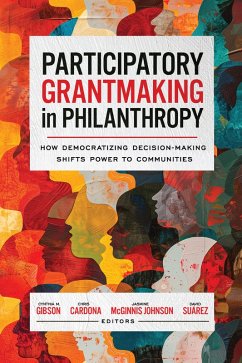
Reimagining Nonprofits (eBook, ePUB)
Sector Theory in the Twenty-First Century
Redaktion: Witesman, Eva; Child, Curtis
Versandkostenfrei!
Sofort per Download lieferbar
110,95 €
inkl. MwSt.
Weitere Ausgaben:

PAYBACK Punkte
55 °P sammeln!
Reimagining Nonprofits (eBook, ePUB)
Dieser Download kann aus rechtlichen Gründen nur mit Rechnungsadresse in A, B, BG, CY, CZ, D, DK, EW, E, FIN, F, GR, HR, H, IRL, I, LT, L, LR, M, NL, PL, P, R, S, SLO, SK ausgeliefert werden.













